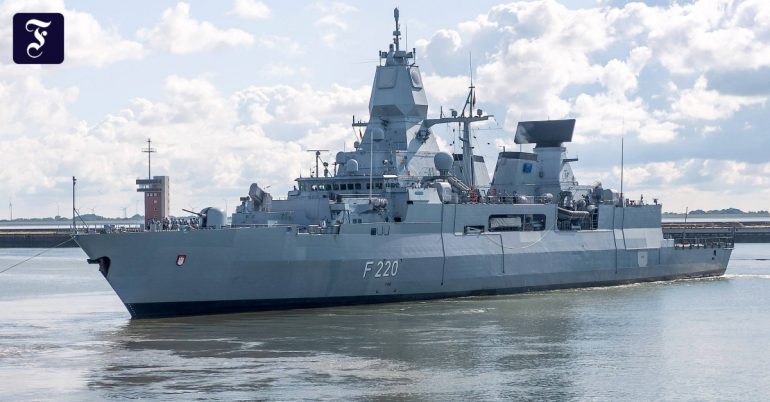UTo increase the weight of its foreign policy in the Indo-Pacific region, Germany is sending naval frigates to the East Asian watershed. As can be heard from high officials in the Foreign Office and the Ministry of Defense, the ship is scheduled to leave its German home port in early August and return to Wilhelmshaven after about six months. The visit of the German warship underscores the role of foreign policy that the German government described in its Indo-Pacific guidelines last September; The frigate will also travel through the South China Sea during its journey.
In the Indo-Pacific Guidelines, which were implemented through the Cabinet proposal, it is claimed to strengthen Germany’s role as “a creative actor and partner” in the Indo-Pacific region. Since December there has also been a strategic partnership with the South East Asian Alliance of ASEAN States, a symbol of this claim. The guidelines also explicitly refer to security aspects; At the same time it is said that efforts for closer cooperation with the states of the region have not been explicitly directed against the People’s Republic of China.
However, the frigate’s dispatch is understood by the federal government as an indication to counter Chinese claims for sovereignty in the South China Sea. In the circle of two ministries, it is said that the highly dynamic Indo-Pacific region with its growing political and economic importance will play a decisive role in “shaping tomorrow’s international order”. Therefore increasing German participation corresponds to German strategic interests. It was said that this commitment has been welcomed by the countries of the region, it also strengthens and protects “our commitment to our multilateral, rules-based principles and values, such as the United Nations law of the sea”.
Way back to South China Sea
The German frigate is on its way to pass the Mediterranean Sea and the Suez Canal, then to the Horn of Africa, and must be part of the anti-piracy mission “Atalanta” en route. The ship is then set to sail through the Indian Ocean and the Malacca Strait and set a course for Australia. One should then proceed to the Korean Peninsula to participate in monitoring sanctions against North Korea for a few weeks. The way should proceed through the South China Sea.
The ministries involved said that there was no intention to cross the twelve miles of territory to the islands or regions where China claims in the South China Sea. However, Germany repeated the arbitration award from the United Nations Convention on the Law of the Seas of July 2016. At the time, the Philippines largely won in a case directed against Chinese claims for a 200-mile territory such as the Spratly Islands around territories, which Beijing counts as its territory.

Web guru. Amateur thinker. Unapologetic problem solver. Zombie expert. Hipster-friendly travel geek. Social mediaholic.






